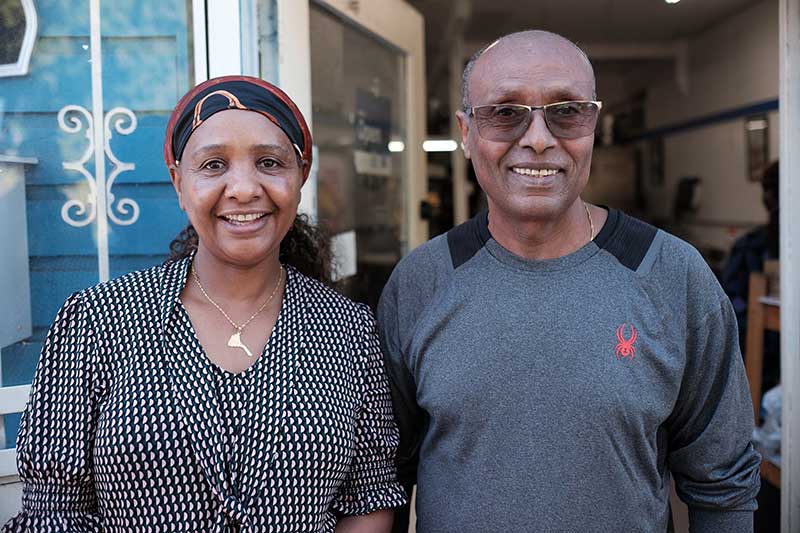A model for bringing fresh and healthy food options to retailers that may not have them, like convenience stores.
A healthy retail environment is one where it is easy and cost effective to make healthy food purchases. The goal is to encourage customers to purchase and consume fruits, vegetables, water, and other nutritious products by increasing access to them while decreasing access to substances like tobacco products. Healthy retail can work well in both urban and rural areas, and programs have been launched in communities across the country.
What are the benefits of shifting to a healthy retail business model?
A retailer stands to benefit from a healthy retail shift in several ways, including:
- Taking advantage of products with higher mark-ups than tobacco.
It’s common for the mark-up on cigarettes to be low—sometimes only 12%, if not lower. Conversely, products like fresh produce, for example, are routinely marked up at 100%, meaning retailers can enjoy larger profits. - Reaching new customers and expanding their customer base.
A report funded by the National Association of Convenience Stores (NACS) highlighted that convenience stores “…must look beyond simply meeting the needs of their traditional customers and embrace the growing [group] who are demanding more and more better-for-you-items”. A shift towards more grocery items and fresh fruits and vegetables could make the retailer eligible for Double-Up Food Bucks, which rewards SNAP customers with free produce and reimburses the retailer. Likewise, meeting WIC (Women, Infants and Children program) requirements would provide access to an additional group of customers. - Saving money on tobacco licenses.
A business must hold a Tobacco Retail License (TRL) from the Oregon Department of Revenue, costing nearly $1,000 per year, to sell any amount or type of tobacco. Businesses with a TRL are subject to annual inspections, the failures of which could mean significant penalties. In 2023, over 20% of tobacco retailers in Oregon were fined for failing their inspections because they sold products to underage people. - Staying ahead of trending tobacco regulations.
If a retailer ends their tobacco sales, they will be ahead of trending regulations around the product category. To protect public health, local, state, and federal agencies have increasingly invested in policies regulating the sale of flavored tobacco products like vapes and menthol cigarettes. Healthy retail provides an opportunity for an alternative revenue stream that supports community health.
- Differentiating their business from others in the community.
Clackamas County has over 300 tobacco retailers. Most of them are convenience stores, which tend to offer the same products—alcohol, sugary beverages, tobacco, and snacks. Shifting their business model gives a retailer the chance to stand out from others in their community and across Clackamas County. - Reducing crime associated with tobacco sales.
Because of their small size, light weight, and resale value on the illegal market, tobacco products are a high-risk product category. Even a small selection of tobacco could be worth thousands of dollars. If a retailer experiences tobacco related theft, they could lose valuable product and be responsible for costly repairs in the event of a break-in. Moving away from tobacco sales means avoiding these risks. - Supporting a healthy community.
Research has shown that greater availability of tobacco products in a community makes it easier to start using these products and harder to stop. Increasing fresh, nutritious food access while decreasing access to products like tobacco helps support a strong, healthy community.
What resources are available to help me or a business in my community adopt a healthy retail model?
- LivelihoodNW – Free and low-cost business advising, support and training for entrepreneurs at all stages of business development.
- Small Business Development Center – Free one-on-one business counseling and low-cost learning courses.
- Hispanic Metro Chamber of Commerce – No-cost small business development assistance as well as programs that promote leadership in the Latine community.
- Sell Healthy! Guide – A guide for retailers on how to sell, stock and promote healthy options.
- How to Make Money Selling Produce – Video produced by the Oregon Health Authority.
- Healthier Food Retail – Extensive guide published by the Centers for Disease Control.
- How to Open a Restaurant – Information provided by Clackamas County Public Health.
About Clackamas County Public Health’s Healthy Retail Pilot Project

Public Health awarded a grant to Milwaukie, Oregon’s The Little Blue Store in August 2024 to help them adopt a healthy retail business model. They agreed to end their tobacco sales and began transitioning their store. The following September, the business held a grand reopening, offering fruits, vegetables, and dairy products to the community—but tobacco products were nowhere in sight. The following month, the owners began offering fresh Ethiopian cuisine for take-out. Visit the store at 2936 SE Washington St, Milwaukie, OR 97222.
An evaluation of the pilot project will be conducted this year, which will inform next steps in the county’s healthy retail work.
Read the report to learn about the project’s outreach and engagement phase that occurred in 2023.
Photos by Hamid Shibata Bennett
 Translate
Translate







